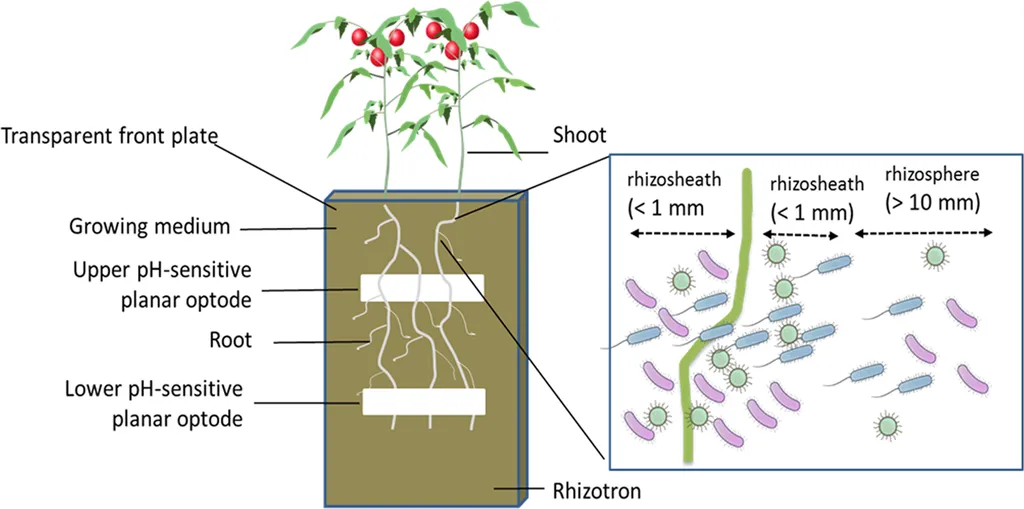In the quest for sustainable agriculture, a recent study published in the journal *Plants* offers promising insights into how organic fertilizers can enhance soil health, microbial diversity, and crop productivity. Led by Jingshi Lu from the Key Laboratory of Grassland Resources at Inner Mongolia Agricultural University, the research explores the intricate relationships between organic fertilizer types, application rates, and their impacts on greenhouse tomato production.
The study focused on three types of organic fertilizers—bone calcium fertilizer (BCF), bone mud fertilizer (BMF), and bio-organic fertilizer (BOF)—applied at varying rates. The findings revealed that the highest rate of BOF (45,000 kg·ha−1) significantly boosted net photosynthesis by 29.5%, stomatal conductance by 50.0%, and fruit yield by 40.8% compared to the unfertilized control. This substantial increase in yield highlights the potential for organic fertilizers to drive commercial success in the agriculture sector.
Beyond yield, the research delved into the soil microbiome, uncovering that BOF enhanced soil organic matter by 42.6% and total nitrogen by 82.0%. Notably, it increased the relative abundance of Proteobacteria, a microbial group known for its role in nutrient cycling and plant growth promotion. “Our findings suggest a microbiome-mediated pathway from fertilization to productivity,” Lu explained. “This means that by optimizing fertilizer type and application rate, we can enhance soil fertility and microbial function, leading to improved crop yields.”
The study employed advanced techniques like structural equation modeling (PLS-PM) to analyze the complex interactions between soil properties, microbial diversity, and plant performance. The results indicated that changes in microbial diversity were positively associated with improved soil properties, which in turn enhanced photosynthetic efficiency and yield formation. This holistic approach provides a robust framework for precision fertilization strategies, offering a pathway to more sustainable and resilient agroecosystems.
For the agriculture sector, these findings are a game-changer. By leveraging organic fertilizers, particularly bio-organic fertilizers, farmers can achieve higher yields while simultaneously improving soil health and microbial diversity. This dual benefit not only enhances productivity but also contributes to long-term sustainability, addressing critical challenges in intensive agriculture.
As the global demand for sustainable farming practices grows, this research paves the way for innovative fertilization strategies. “Optimizing both the type and rate of organic fertilizer can enhance soil fertility, microbial function, and crop yield simultaneously,” Lu noted. This evidence-based approach offers a blueprint for precision agriculture, ensuring that farmers can meet current productivity demands while safeguarding the environment for future generations.
In conclusion, this study provides a compelling case for the adoption of organic fertilizers in modern agriculture. By understanding and harnessing the intricate relationships between soil, microbes, and plants, we can unlock new potentials for sustainable and productive farming practices. As the agriculture sector continues to evolve, these insights will undoubtedly shape the future of precision fertilization and agroecosystem resilience.

